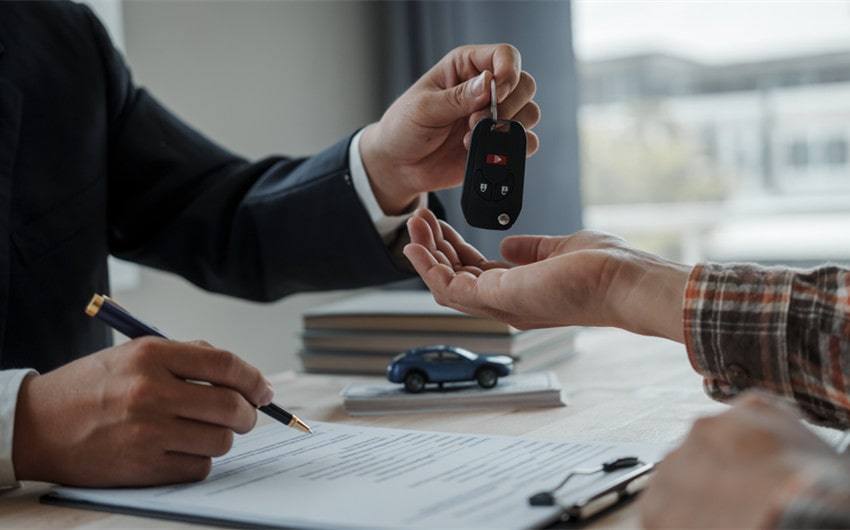10 Reasons Not to Lease a Car: What You Should Know
Leasing a car can seem like an attractive option with its lower monthly payments and the appeal of driving a new vehicle every few years. But before signing that lease agreement, it’s important to weigh the potential downsides. There are several reasons not to lease a car that might make you rethink your decision.
From hidden fees to restrictions on mileage, leasing isn’t always as straightforward as it appears. In this article, we’ll explore the key factors to consider before you commit to leasing your next vehicle.
10 Reasons Not to Lease a Car

1. High Long-Term Costs
Leasing a car can seem like a cost-effective option at first because the monthly payments are typically lower than those for purchasing a vehicle. However, over time, you could end up spending more than if you had bought the car outright.
Leasing means you’re constantly paying for the use of a vehicle with no ownership benefits at the end. When you buy a car, you have the opportunity to keep it for several years after the loan is paid off, making it a more affordable option in the long run.
2. Mileage Restrictions
Leasing contracts usually come with mileage limits, often ranging from 10,000 to 15,000 miles per year. If you exceed the agreed-upon mileage, you’ll be hit with steep penalties, sometimes as high as 25 to 30 cents per extra mile.
For people with long commutes or those who enjoy road trips, these limits can be frustrating and expensive. You might find yourself paying significant fees if you’re a frequent traveler, making leasing a less attractive option for those who drive a lot.
3. No Equity or Ownership
When you lease a car, you’re essentially renting it for a set period, usually two to three years, without any ownership at the end. Once the lease is up, you have to return the car to the dealership and walk away with nothing to show for your payments.
In contrast, when you buy a car, your monthly payments are contributing toward ownership. After the loan is paid off, you own the car outright, and it can be sold or traded in for your next vehicle. Leasing leaves you with no equity and no asset.
4. Customization Limitations
If you’re someone who likes to customize your vehicle—whether that’s adding new rims, a custom stereo system, or unique paint jobs—leasing may not be the best option. Most lease agreements prohibit alterations to the car, and any modifications you make could result in additional charges or the need to restore the car to its original condition when you return it. For car enthusiasts who enjoy personalizing their ride, leasing can feel like a major limitation.
5. Potential for Extra Fees
Leasing often comes with additional costs that can catch you off guard. While the monthly payments might be lower than those of an auto loan, you’ll likely face other expenses when the lease term ends. If the car shows any signs of wear and tear (like minor dents, scratches, or worn-out tires), you could be charged for repairs.
Additionally, exceeding the mileage limit can result in costly fees, and returning the car early can also trigger hefty penalties. These extra charges can add up quickly, making leasing feel more expensive than it initially seems.
6. Less Flexibility for Early Termination
One of the key downsides of leasing is the lack of flexibility if your circumstances change. If you need to break your lease early—due to a job relocation, personal financial issues, or simply a change in your preferences—it can be expensive and complicated.
Lease agreements often come with hefty penalties for early termination, and you may still be responsible for the full remaining value of the contract. This lack of flexibility can make leasing a less appealing choice if you’re uncertain about your future plans.

7. Risk of Paying for More Car Than You Need
When you lease a car, especially if you opt for a more luxurious model, you might find yourself paying for features or capabilities you don’t really need. Leasing often encourages people to choose a car with more options or a higher trim level than they would buy if they were purchasing outright.
This can lead to unnecessary expenses, especially if you don’t use the advanced features like premium audio systems, leather seats, or high-end safety features. In contrast, when buying a car, you have more control over what you’re paying for and can choose a model that aligns more closely with your actual needs.
8. Possible GAP Insurance Requirement
If you lease a car and it’s damaged or stolen, there’s a chance that your insurance coverage won’t fully cover the remaining lease balance. The value of the car might depreciate faster than you’re paying off the lease, leaving you with a gap between what the insurance pays and what you owe.
To protect yourself, you may need to purchase GAP (Guaranteed Asset Protection) insurance, which can add to your monthly expenses. Without GAP insurance, you might be left with a large bill if something happens to the car during the lease term.
9. Lease Terms May Be Complex and Confusing
Leasing contracts are often filled with intricate terms and conditions that can be difficult to fully understand. From how the residual value is calculated to the specifics of what constitutes “excessive wear and tear,” the fine print in lease agreements can be complicated.
Many people don’t realize that they might be subject to additional charges, such as excess mileage fees or damage penalties, until it’s too late. Understanding the details of a lease is crucial, and failing to do so can lead to unexpected costs at the end of the term.
10. Depreciation Isn’t Your Problem, But You Still Pay for It
While leasing a car means you don’t have to worry about the car’s depreciation—because the leasing company takes on that risk—you’re still indirectly paying for it. Your lease payments are based on the depreciation of the car over the term of the lease, which means you’re still absorbing some of that loss in value.
If you were buying the car, you’d eventually own an asset that could retain value over time, or at least could be sold or traded in. With leasing, you don’t have that option, and the car’s depreciation impacts your cost without any long-term benefits.







